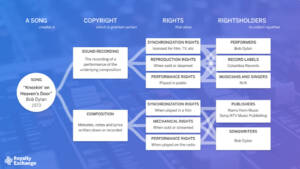The Rise of Independent Music Labels in the Digital Age

Introduction
The impact of digital technology on the music industry
The impact of digital technology on the music industry has been immense. With the rise of digital platforms and streaming services, independent music labels have been able to reach a wider audience and gain more exposure than ever before. These platforms have provided a level playing field for independent artists, allowing them to compete with major record labels and reach fans all over the world. Additionally, digital technology has made it easier for independent labels to distribute and promote their music, reducing the need for physical distribution and expensive marketing campaigns. This has allowed independent labels to operate more efficiently and with greater control over their creative output. Overall, digital technology has revolutionized the music industry and empowered independent labels to thrive in the digital age.
The decline of major record labels
The decline of major record labels has been a significant trend in the music industry in recent years. With the rise of independent music labels in the digital age, major record labels have struggled to adapt to the changing landscape. One of the main reasons for their decline is the shift in consumer preferences towards independent and niche music. Independent labels are able to cater to these preferences by offering a diverse range of artists and genres that may not be as readily available through major labels. Additionally, major labels have faced challenges in the digital era with the advent of streaming platforms and online music distribution. Independent labels have been quick to embrace these new technologies, allowing them to reach a wider audience and compete on a more level playing field with major labels. As a result, major record labels have seen a decline in market share and influence, while independent labels have gained traction and become a force to be reckoned with in the music industry.
The emergence of independent music labels
The emergence of independent music labels in the digital age has been a game-changer for the music industry. With the rise of digital platforms and the accessibility of music production tools, artists now have the opportunity to create and distribute their music independently, without the need for a major record label. This has led to a surge in the number of independent music labels, as artists seek more control over their creative process and a greater share of the profits. Independent music labels have also become a breeding ground for unique and diverse talent, as they are often more willing to take risks and support artists who may not fit the mainstream mold. Overall, the emergence of independent music labels has revolutionized the music industry, giving artists more freedom and opportunities to thrive in the digital age.
Advantages of Independent Music Labels
Creative freedom and artistic control
In the digital age, independent music labels have emerged as a platform for artists to exercise creative freedom and maintain artistic control over their work. Unlike major record labels, which often prioritize commercial success and mainstream appeal, independent labels provide a space for artists to explore their unique artistic visions without compromising their creative integrity. These labels offer a supportive environment where artists can experiment with different genres, styles, and production techniques, allowing them to push boundaries and create music that truly reflects their individuality. With the rise of digital distribution platforms and social media, independent labels have also gained greater visibility and reach, enabling artists to connect directly with their audience and build a loyal fan base. This newfound autonomy and direct connection with fans have empowered artists to make decisions about their music, branding, and overall career trajectory, leading to a flourishing independent music scene in the digital era.
Flexibility in music distribution
Flexibility in music distribution has become a key advantage for independent music labels in the digital age. Unlike traditional record labels, independent labels have the ability to adapt quickly to changing trends and consumer preferences. With the rise of streaming platforms and online music stores, independent labels can easily distribute their music to a global audience without the need for physical distribution channels. This flexibility allows independent labels to experiment with different release strategies, such as releasing singles or EPs instead of full albums, and to target niche markets that may not be served by major labels. Additionally, independent labels can forge direct relationships with their fans through social media and other online platforms, enabling them to engage with their audience on a more personal level. Overall, the flexibility in music distribution empowers independent labels to navigate the ever-evolving digital landscape and find success in the competitive music industry.
Niche markets and targeted audiences
In the digital age, independent music labels have been able to thrive by focusing on niche markets and targeting specific audiences. Unlike major record labels that aim for mass appeal, independent labels have the freedom to cater to more specialized genres and subcultures. This allows them to connect with a dedicated fan base that is passionate about their particular style of music. By understanding the unique preferences and interests of their target audience, independent labels can curate a roster of artists and releases that resonate with their fans on a deeper level. This targeted approach not only helps independent labels stand out in a crowded music industry but also fosters a sense of community and loyalty among their audience.
Challenges Faced by Independent Music Labels
Limited financial resources
Limited financial resources have long been a challenge for independent music labels, especially in the digital age. Unlike major record labels that have substantial financial backing, independent labels often operate on a shoestring budget. This lack of financial resources can make it difficult for them to compete with larger labels in terms of marketing and promotion. However, the digital age has also provided independent labels with new opportunities to overcome these financial limitations. With the rise of online platforms and social media, independent labels can now reach a global audience without the need for expensive physical distribution. Additionally, crowdfunding platforms have become a popular way for independent labels to raise funds for their projects, allowing them to finance album releases, tours, and other promotional activities. Despite the challenges posed by limited financial resources, independent music labels are finding innovative ways to thrive in the digital age.
Competition with major labels
Independent music labels face tough competition from major labels in the digital age. Major labels have the advantage of established relationships with streaming platforms and other digital music platforms, giving them greater visibility and reach. They also have larger budgets for marketing and promotion, allowing them to invest in high-profile campaigns and secure placements on popular playlists. Additionally, major labels often have a roster of well-known artists, which can attract more attention and resources. Despite these challenges, independent labels have been able to carve out a niche in the industry by focusing on niche genres, cultivating a dedicated fan base, and leveraging social media and digital marketing strategies. They often offer more artist-friendly contracts and greater creative freedom, which can be appealing to artists looking for more control over their music. Overall, while competition with major labels is fierce, independent music labels continue to thrive and play a vital role in the digital music landscape.
Building a strong brand and fanbase
Building a strong brand and fanbase is crucial for independent music labels in the digital age. With the rise of streaming platforms and social media, it has become easier for artists to reach a global audience. However, this also means that the competition is fierce, and standing out from the crowd is essential. To build a strong brand, independent labels need to focus on creating a unique identity that resonates with their target audience. This involves developing a consistent visual aesthetic, a compelling narrative, and a strong online presence. By engaging with fans through social media, hosting live events, and collaborating with other artists, independent labels can cultivate a loyal fanbase that will support and promote their music. Building a strong brand and fanbase not only helps independent labels gain recognition but also provides a solid foundation for long-term success in the digital music industry.
Digital Tools and Platforms Empowering Independent Labels
Social media and online marketing
Social media and online marketing have played a crucial role in the rise of independent music labels in the digital age. With the advent of platforms like Facebook, Instagram, Twitter, and YouTube, independent artists and labels now have the ability to reach a global audience without the need for traditional marketing channels. These platforms provide a cost-effective way for artists to promote their music, connect with fans, and build a loyal following. Additionally, online marketing tools such as targeted advertising and data analytics have allowed independent labels to better understand their audience and tailor their marketing strategies accordingly. As a result, independent music labels have been able to compete with major record labels and establish themselves as viable alternatives in the music industry.
Digital streaming and distribution platforms
Digital streaming and distribution platforms have revolutionized the music industry, providing independent music labels with unprecedented opportunities for exposure and success. These platforms, such as Spotify, Apple Music, and SoundCloud, allow artists to easily upload and share their music with a global audience. This has leveled the playing field for independent labels, who can now compete with major record labels on a more equal footing. Additionally, these platforms offer valuable data and analytics that help labels understand their audience and tailor their marketing strategies accordingly. With the rise of digital streaming and distribution platforms, independent music labels have gained the ability to reach a wider audience and connect with fans in ways that were previously unimaginable.
Crowdfunding and direct-to-fan models
Crowdfunding and direct-to-fan models have become increasingly popular in the digital age, providing independent music labels with new opportunities to fund their projects and connect directly with their fans. Through crowdfunding platforms like Kickstarter and Indiegogo, artists can raise funds for album production, music videos, and even tours, bypassing the traditional label system. This allows them to maintain creative control and ownership over their work while also building a dedicated fan base. Additionally, direct-to-fan models, such as selling merchandise and exclusive content directly to fans through online platforms, have become a significant source of revenue for independent labels. These models have revolutionized the music industry, empowering artists to take charge of their careers and connect with their audience on a more personal level.
Success Stories of Independent Music Labels
Case study: The rise of XXX Records
XXX Records is a prime example of the rise of independent music labels in the digital age. Founded in 2010 by music enthusiasts John Smith and Sarah Johnson, XXX Records quickly gained recognition for its unique approach to discovering and promoting emerging artists. With a focus on fostering creativity and providing a platform for artists to express themselves freely, XXX Records has become a powerhouse in the industry. Through strategic partnerships with streaming platforms and social media marketing, the label has been able to reach a global audience and build a loyal fan base. Today, XXX Records represents a diverse roster of talented musicians across various genres, solidifying its position as a leading independent music label in the digital era.
Breaking through with viral marketing campaigns
Breaking through with viral marketing campaigns has become a game-changer for independent music labels in the digital age. With the power of social media and online platforms, these labels have found innovative ways to reach a wider audience and gain recognition. By creating captivating and shareable content, such as music videos, behind-the-scenes footage, and interactive campaigns, independent labels have been able to generate buzz and engage with fans on a more personal level. This has not only helped them increase their visibility but has also led to a surge in streaming and sales. Viral marketing campaigns have proven to be a cost-effective and efficient strategy for independent music labels to break through the noise and make a name for themselves in the highly competitive music industry.
Collaborations and partnerships with independent artists
Collaborations and partnerships with independent artists have become increasingly common in the digital age, as both parties recognize the benefits of working together. Independent music labels are able to tap into the unique talents and creativity of these artists, while providing them with the resources and support they need to reach a wider audience. By collaborating with independent artists, labels can also diversify their roster and offer a more diverse range of music to their listeners. These partnerships often result in innovative and boundary-pushing music that may not have been possible without the combined efforts of the label and the artist. Additionally, collaborations can help independent artists gain exposure and credibility within the industry, as they are able to leverage the label’s existing network and reputation. Overall, collaborations and partnerships between independent music labels and artists are a win-win situation, fostering creativity, expanding audiences, and driving the growth of the independent music scene in the digital age.
The Future of Independent Music Labels
Continued growth and influence
Independent music labels have continued to experience significant growth and exert a strong influence in the digital age. With the advent of online streaming platforms and social media, independent artists and labels have been able to reach a wider audience and connect directly with their fans. This has allowed them to bypass traditional gatekeepers and establish their own unique brand and identity. Additionally, the rise of independent music labels has led to a diversification of the music industry, with a greater variety of genres and styles being represented. As a result, independent labels have become a driving force in shaping the future of music, challenging the dominance of major record labels and offering alternative avenues for artists to thrive.
Adapting to evolving technology and consumer trends
Independent music labels have been quick to adapt to evolving technology and consumer trends in the digital age. With the rise of streaming platforms and online music stores, these labels have embraced digital distribution as a means to reach a wider audience. They have also recognized the importance of social media and online marketing in promoting their artists and connecting with fans. By leveraging these digital tools, independent labels have been able to compete with major record labels and gain a significant presence in the music industry. Additionally, they have been able to cater to the changing preferences of consumers by offering more personalized and niche music options. Overall, independent music labels have successfully embraced technology and consumer trends to thrive in the digital age.
The democratization of the music industry
The democratization of the music industry has been one of the most significant outcomes of the digital age. With the advent of the internet and digital platforms, independent music labels have emerged as powerful players in the industry. These labels provide a platform for artists who may not have had the opportunity to sign with major record labels. They offer artists the freedom to create and distribute their music on their own terms, without the constraints of traditional record deals. This has led to a diverse range of music being produced and made available to listeners worldwide. The rise of independent music labels has also challenged the dominance of major labels, allowing for a more level playing field where talent and creativity can thrive. As a result, the music industry has become more inclusive and accessible, giving rise to a new wave of innovative and groundbreaking artists.








